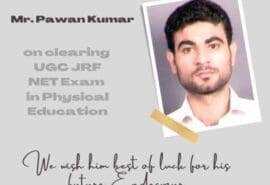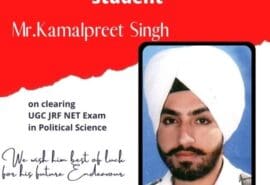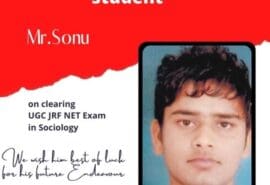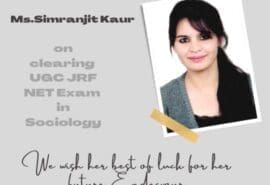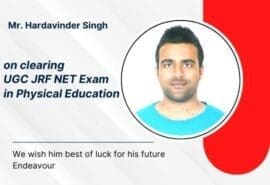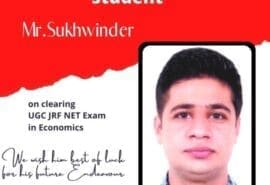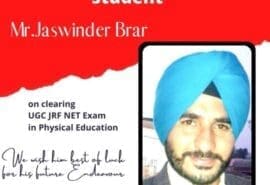
Sociology Exam Prep - Unlock Your Full Potential
Sociology Exam Prep - Unlock Your Full Potential
Higher secondary and undergraduate-level sociology exams aim to test conceptual clarity, theoretical knowledge, analytical abilities, and real-world application.
Sociology Exam Prep Preparing methodically and strategically for these assessment milestones unlocks students' full learning potential within sociology disciplines that enrich their worldviews throughout life. This article suggests a holistic prep framework towards excelling in tests.
Cultivate Intrinsic Motivation
Unlike mandated curricula subjects, optimally benefiting from a complex, interdisciplinary elective like sociology requires self-driven curiosity about societies, issues and theoretical paradigms shaping behaviors, cultures and institutions.
Preparation commences by reflecting on what intrinsically fascinates you within the course materials rather than just completing it for marks. Identify your sociological interests and orientations. Let your innate wonder about society drive queries to unravel through conscious study.
Master Fundamental Concepts
With over 300 distinct concepts spanning sociological imagination, culture, hierarchy, demographics and structure-agency debates, the first step is grasping definitions and canonical interpretations of constituent concepts like norms, roles, labeling, anomie, social capital etc.
Tabulate and memorize technical meanings across assigned readings and lectures, compiling Wikipedia entries and scholastic summaries around each concept for easy recall and cross-referencing. This constructs robust foundations for further learning.
For UGC JRF NET Sociology Exam Preparation Coaching, contact us at Mantram Study Group, SCO No. 80-81, First Floor, Sector 15-D, Chandigarh (Near Gate No. 2, Panjab University Chandigarh – Contact – 9779797575/ 9463049859)
Contextualize Theories
Sociological theories aim to provide structured mechanisms explaining the dynamics of social issues, behaviors or phenomena revealed through research. To deeply integrate paradigms like functionalism and conflict theory, relate their genesis and applications to historical events and modern societies you're familiar with.
For instance, link protest movements to Karl Marx's class conflict paradigm. Exploring real situations, debates and ideologies theories attempt to analyze unlocks their relevance for exam tasks demanding theoretical application.
Learn Research Methods
Gripping sociological research methodology equips one to design studies investigating questions that intrigue you, collect empirical evidence, statistically analyze data and derive meaningful inferences.
Closely understand scientific merits and limitations around qualitative and quantitative methods, key sampling principles, survey procedures, etc. Identify examples of analytical studies in journals and mainstream media reports to demystify theoretical learning. Know research ethics.
Practice Answer Writing
Honing skills to write coherent, structurally sound, adequately detailed responses to different question types is vital for exam success. Repetitively writing answers to issue-based, theory application or data interpretation questions within timed conditions hone concise, structured writing abilities and reduces test anxieties around vital marks. Review answer keys and personalized feedback to continually refine response writing tactics tailored to your target sociology exams.
Attempt Previous Papers
By attempting the past ten years' question papers within limited timeframes, you gain greater exam familiarity, self-diagnose readiness across topics, and uncover potential blindspots for course correction before main exams.
Patterns in questions set each year also emerge through repeated attempts. Be aware of evolving trends in focal themes that emphasize functionalism, interpretivism, Dalit discourse, etc. Notice relative weightage shifts in topics that help optimally apportion revision efforts.
Time Management & Revision
Creating optimal daily schedules balancing study targets across multiple subjects and strategic revision of prior topics as exams approach boosts confidence. Complete the syllabus by cramming 100 concepts daily from compiled notes for the first three months.
After that, two weeks for rigorous revision were consolidated into 10-hour marathon mocks on weekends that mirrored real exam conditions timed at three hours. Use results to determine final areas needing focus.
Health Above All
Amidst intense study periods, pay attention to health, nutrition and self-care, which profoundly impact cognitive capacities. Reject notions of sleep deprivation being essential.
Prioritize wholesome meals every three hours, deep sleeping routines, and leisure activities that de-stress and exercise for 10 minutes daily to maintain fitness vital in academically excelling.
In summary, adopting a holistic strategy aligns mindsets, learning techniques and lifestyle habits to maximize sociological knowledge absorption. Sustain intrinsic curiosity about social phenomena beyond academics.
Embrace a growth-oriented, iteration-based mindset rather than chasing perfection. Maintain balance across test preparation, wellness and interpersonal relationships, which collectively unlock your highest potential as a sociology student ready to engage intelligently with pressing issues confronting societies.
Thanks for visiting our website Mantram Study Group
You may also join Mantram for NORCET Coaching
CHECK OUR OTHER LINKS: -
















